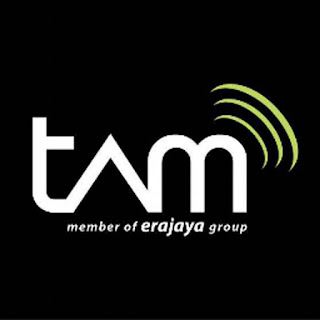Remote Communications Networks
The remote commuication network is necessary to relay data from remote RTU/PPLCs, which are out in the field or along the pipeline, to the SCADA host located at the field office or central control center. With assets distributed over a large geographical area, communicaton is the glue or the linking part of a SCADA system and essential to its operation. How well a SCADA system can manage communication to remote assets is fundamental to how sucessful the SCADA system is.
Twnty years ago the comunication network would have been leased lines or dial-up modems which were very expenive to install and maintain, but in the last 10-15 years many users have switched to radio or satellite communications to reduce costs and eliminate the problematic cabling issues. More recenly, other communication tyes have been made available that include cellular communictions and improved radio devices that can support greater communication rates and better diagnosics. However, the fact hat these types of commnication media are still prone to failure is amajor issue for modern, distributed SCADA systems.
At the same time as the communication medium changed so too did the protocols are electronic languages that PLCs and RTUs use to exchange data, either with other PLCs and RTUs or SCADA Host platforms. Traditionally, protocols have been proprletary and the product of a single manufacturer. As a furher development, many manufactures gracitated to a single protocol, MODBUS, but added on propriatery elements to meet specific functionalty requirements. Foe the Oil & Gas industry there are a number of variants of MODBUS, including but not limited to, MODBUS ASCII, MODBUS RTU, Enron MODBUS and MODBUS/TCP. This provided a communication standart for the retrieval of flow or process data from a particular RTU or PLC.
The incremental development inusing MODBUS protocol variants was seen as an improvement, but it still tied a custimer ti a particular manufacturer, which is very much the case today. A god example is how historical flow data is retrieved from a RTU/PLC by a SCAADA Host. owever, the advencement of SCADA Host software, and in some cases the sharing of prorocol languages, has meant that many of the issues with proprietary elements have been futher resolved.
In recent years, protocols have appreared that are truly non-proprierary, such as DNP (Distributed Network Protocol). These protocols have been created independently of any single manufacturer have subscribed to these protocols and contributed to their development. However, these protocols have yet to develop signifivantly requirements for oil & gas markets. Consequently, the oil and gas market is still heavly invested in MODBUS variants. As the benefits of these protocol become more apparent to users, it is expected that they will be more readlly accepted and become a component of standard solutions provided specifically for oil and gas markets
Source: Retyped From SCADA Systems White paper (Mrch 2012) by Schneider Electric Tekementry & Remote SCADA Solutions
Twnty years ago the comunication network would have been leased lines or dial-up modems which were very expenive to install and maintain, but in the last 10-15 years many users have switched to radio or satellite communications to reduce costs and eliminate the problematic cabling issues. More recenly, other communication tyes have been made available that include cellular communictions and improved radio devices that can support greater communication rates and better diagnosics. However, the fact hat these types of commnication media are still prone to failure is amajor issue for modern, distributed SCADA systems.
At the same time as the communication medium changed so too did the protocols are electronic languages that PLCs and RTUs use to exchange data, either with other PLCs and RTUs or SCADA Host platforms. Traditionally, protocols have been proprletary and the product of a single manufacturer. As a furher development, many manufactures gracitated to a single protocol, MODBUS, but added on propriatery elements to meet specific functionalty requirements. Foe the Oil & Gas industry there are a number of variants of MODBUS, including but not limited to, MODBUS ASCII, MODBUS RTU, Enron MODBUS and MODBUS/TCP. This provided a communication standart for the retrieval of flow or process data from a particular RTU or PLC.
The incremental development inusing MODBUS protocol variants was seen as an improvement, but it still tied a custimer ti a particular manufacturer, which is very much the case today. A god example is how historical flow data is retrieved from a RTU/PLC by a SCAADA Host. owever, the advencement of SCADA Host software, and in some cases the sharing of prorocol languages, has meant that many of the issues with proprietary elements have been futher resolved.
In recent years, protocols have appreared that are truly non-proprierary, such as DNP (Distributed Network Protocol). These protocols have been created independently of any single manufacturer have subscribed to these protocols and contributed to their development. However, these protocols have yet to develop signifivantly requirements for oil & gas markets. Consequently, the oil and gas market is still heavly invested in MODBUS variants. As the benefits of these protocol become more apparent to users, it is expected that they will be more readlly accepted and become a component of standard solutions provided specifically for oil and gas markets
 |
| Wide Area Network SCADA |



Comments
Post a Comment